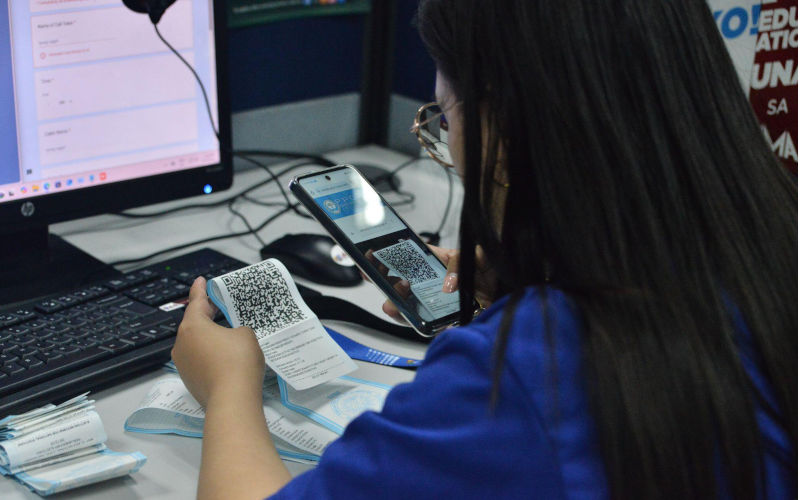International observers find Philippine mid-term elections not free and fair
June 4, 2025
In September 2023, Australian Prime Minister Anthony Albanese met Philippine President Ferdinand Marcos Jr to upgrade the relationship between the two countries from “comprehensive” to “ strategic” partnership.
They claimed the partnership was “founded on shared democratic values”. But the 12 May 2025 mid-term elections in the Philippines really made a mockery of that.
These elections “did not meet international standards for free and fair elections”, according to the final report of the International Observer Mission released on 27 May, citing “grave and widespread violations” of human rights across the country.
“The rights of Filipinos to vote freely and without coercion were compromised,” said one IOM Commissioner, former Australian Senator Lee Rhiannon. “The climate of fear, normalised vote-buying and militarisation that surrounded the elections reflects a failure to uphold international democratic standards.”
The IOM undertook weeks of intensive documentation by international field teams deployed across Luzon, Visayas, and Mindanao during the election campaign. Observers interviewed voters, poll watchers, campaigners, local officials and civil society leaders. Remote teams monitored digital disinformation and the experience of overseas Filipino voters. For safety reasons, these teams made no media contact, handing this task to eminent personalities outside the Philippines in the role of Commissioners of the IOM.
The IOM partnered with local election watchdogs Kontra Daya (Against Fraud) and Vote Report PH.
The whole project was initiated by the International Coalition for Human Rights in the Philippines ( ICHRP).
Voter disenfranchisement, vote-buying
The IOM Final Report documented 545 cases of electoral violations, including vote-buying, disenfranchisement, harassment, red tagging, election-related killings and disappearances.
Malfunctioning automated counting machines, ballots wrongly rejected as “overvotes”, and pre-marked or misprinted ballots, disenfranchised hundreds of thousands of voters. COMELEC failed to explain why the machines used a non-certified software version, casting doubt on the integrity of the results.
The disenfranchisement extended overseas, where online registration glitches and delayed pre-enrolment requirements led to an historically low 18.12% voter turnout among overseas Filipino workers.
Workers and the urban poor were excluded because 12 May was not declared a paid public holiday, forcing many to choose between voting and earning income.
Vote-buying was brazen and widespread. The IOM alone recorded 111 vote-buying incidents, with COMELEC receiving 158 formal complaints up to 25 April, but issuing only minimal sanctions. One party-list, Ako Bicol, reportedly offered up to 16,000 PHP (A$447) per vote – for many people that is more than one month’s wages.
Red-tagging, militarisation
“The 2025 mid-term election failed to uphold the most basic democratic principle, the people’s uncoerced right to choose their leaders,” said Rhiannon. “The abuses by various arms of state power not only constitute electoral violations, they also constitute violations of human rights and international humanitarian law.”
She said red tagging was “the most frequently reported violation”. There were 112 cases documented solely by the IOM, while a staggering 1445 cases were reported by Vote Report PH. “It deterred campaigning, and prevented people from voting.”
Red tagging is public denunciation of individual civilians and organisations as members or supporters of the communist New People’s Army, often leading to death threats, arrest or extrajudicial killing.
Rhiannon recounted cases of banners branding progressive candidates “NPA” and “terrorist” in Southern Tagalog, and the display across the country of fake coffins marked with blood and names of activist groups. “In Western Visayas, soldiers interrogated children as young as five. In Abra, the military handed out ‘surrender papers’ in exchange for financial aid or a chance to ‘clear’ one’s name,” she said. Rhiannon emphasised that these abuses were part of a “well-funded campaign involving the police, military, and the National Task Force to End Local Communist Armed Conflict.”
Balikatan military exercises
IOM commissioner Colleen Moore, from the United Methodist Church in Washington DC, criticised the largescale US-led Balikatan (shoulder-to-shoulder) military exercises, which overlapped with the midterm elections, as a major distortion of democratic space. “The staging of war games with over 15,000 foreign and local troops during an electoral campaign is not just poor judgment. It is an outright violation of national sovereignty of Filipinos,” Moore said. There were more than 260 Australian troops in the Balikatan exercises.
She noted that candidates advocating an independent foreign policy were vilified as “Beijing’s puppets”, while dissent was drowned out by the state narrative about an imminent Chinese invasion, equating opposition to the exercises with disloyalty.
Observer Mission recommendations
The IOM called for the adoption of a hybrid election system that allows for both manual and automated vote counting, simplifying the OFW registration system, declaring voting day as a paid public holiday, the urgent passage of the long-delayed Anti-Dynasty Bill, criminalising of red tagging and vote-buying, and measures to ensure nonpartisanship and transparency of the COMELEC.
The IOM called for sustained scrutiny of the Philippine electoral process and human rights situation by the international community. It specifically called for the abolition of the NTF-ELCAC, describing it as a “central apparatus of red-tagging, intimidation, and political repression”, and repeal of the Anti-Terrorism Act of 2020. It urged the Philippines to rejoin the International Criminal Court. It called for an end to military exercises like Balikatan. These measures, the report said, are vital to enabling peaceful political participation and rebuilding public confidence in the country’s democratic institutions.
Peter Murphy is the Chairperson of the ICHRP Global Council.
The views expressed in this article may or may not reflect those of Pearls and Irritations.


